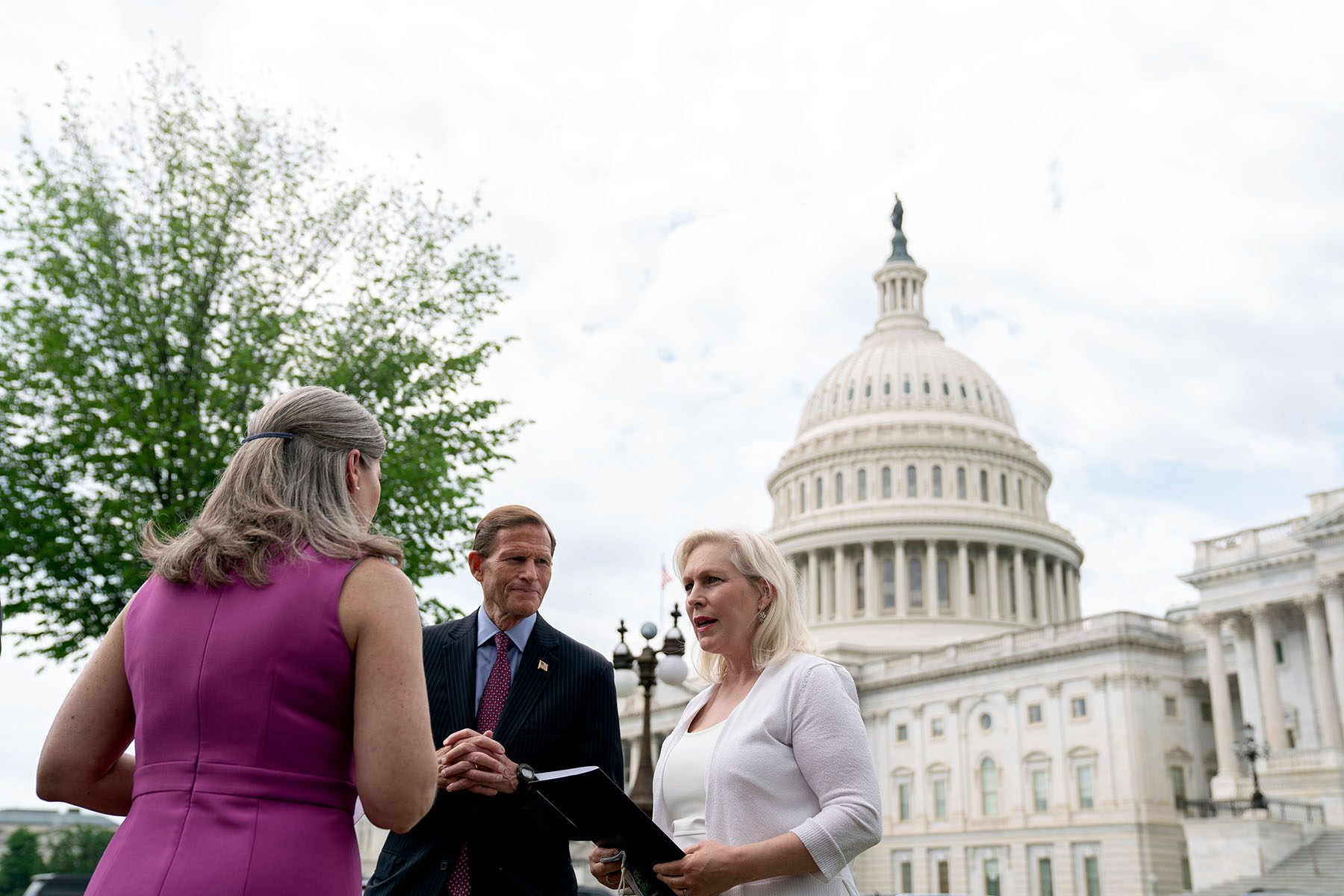Editor’s note: This article was updated with additional details about the NDAA military justice provision.
The U.S. Senate on Wednesday approved an annual defense bill that will modify how the military handles cases of sexual assault and harassment. But Democratic Sen. Kirsten Gillibrand of New York said the tweaks “fall short of creating a truly independent military justice system, which is what survivors, service members and veterans have asked for.”
“In order to ensure that their voices are not silenced, I will continue calling for an up or down floor vote on the Military Justice Improvement and Increasing Prevention Act, which has the support of nearly two-thirds of the Senate and the majority of the House,” Gillibrand said in a statement to The 19th.
Gillibrand, a member of the Senate Armed Services Committee, has for eight years championed changing the military’s chain of command for handling allegations of serious crimes, including but not limited to sexual assault. Her Military Justice Improvement and Increasing Prevention Act now has 66 co-sponsors in the 100-seat Senate, including vocal Republican allies in Sens. Joni Ernst and Chuck Grassley, both of Iowa, as well as support from Democratic leaders. Democratic Rep. Jackie Speier of California introduced a companion bill in the House of Representatives that has 219 co-sponsors.
The National Defense Authorization Act, or NDAA, is an annual bill that funds the Department of Defense. The $770 billion legislation passed the House earlier this month, which means it will now be sent to President Joe Biden, who is expected to sign it into law. White House spokesperson Karine Jean-Pierre said the president “believes this legislation takes groundbreaking steps” to prevent military sexual assault.
The military justice provision included in the NDAA designates an independent special prosecutor to handle specific crimes such as rape, sexual assault, murder and domestic violence. Military leaders will retain the convening authority to begin a court martial, though the recommendations of the special prosecutor are meant to be binding. Commanders can also still select the jury pool for a court martial and make other procedural decisions.
The Military Justice Improvement and Increasing Prevention Act, which Gillibrand hoped would be included as an NDAA amendment, would have applied to serious crimes more broadly. It would avoid creating what Gillibrand calls a “pink court” that would apply to mainly women service members and further stigmatize those who come forward with claims of sexual assault and harassment. She has argued that military commanders should be entirely removed from the chain of command in serious cases.
Gillibrand said last week that when she asked for votes on her military justice bill, leaders of the Senate and House armed services panels gave her the “false promise” that it would be considered as an NDAA amendment in the Senate. “I was assured fulsome debate,” she said on the Senate floor.
But, after Republican Sen. Marco Rubio of Florida put what is called a “hold” on the Senate NDAA over his amendment that would have prohibited imports of products made by Uyghurs in forced labor camps in China’s Xinjiang province, leaders of both armed services committees decided to bypass the amendment process and negotiated the details of various parts of the bill on their own.
Gillibrand said that her bill was denied full consideration as an NDAA amendment by “four men, in a closed room, making a decision themselves,” adding: “When the doors closed for the conference, the story changed, our votes were not respected, our voices were silenced, those promises were broken.”
The chairs of the armed services committees are Democratic Sen. Jack Reed of Rhode Island and Washington Rep. Adam Smith, and the top Republicans are Sen. James Inhofe of Oklahoma and Alabama Rep. Mike Rogers. All are White men. Reed said the provisions included in the NDAA are “historic.” Smith called them “transformative” and said that Gillibrand has “misrepresented” them.
Multiple senators criticized the failure to include Gillibrand’s version, which has strong bipartisan support. Grassley said in a recent news conference that “we have seen the power structure of the United States Senate interfere with the goals of two-third of the United States Senate.” Democratic Sen. Richard Blumenthal, who serves with Gillibrand on the armed services panel, said the military justice legislation was debated at length on its own ahead of the NDAA. “The question really is: What happened? What happened to the democratic process?” he asked.
Gillibrand said in a floor speech last week — one of dozens she has delivered on the subject this year — that the “only change they would’ve had to make [to the NDAA amendment] is the designation of convening authority would go from the commander to these new independent, changed prosecutors.”
“It’s a simple change, it’s a change we have begged for,” she said.
Gillibrand also criticized Reed and Inhofe as too deferential to the Pentagon. “They want the reform to be as minimal as possible. They prefer the status quo,” she said.
“They’re willing to pretend they’re doing the thing that we’ve asked them to do, they’re willing to create the impression they’re doing the thing we’ve asked them to do, but they know what convening authority means, and they retained it,” she added.
Gillibrand, Ernst, Grassley and Blumenthal will continue to push for a stand-alone vote on the Military Justice Improvement and Increasing Prevention Act when Congress returns in 2022.







